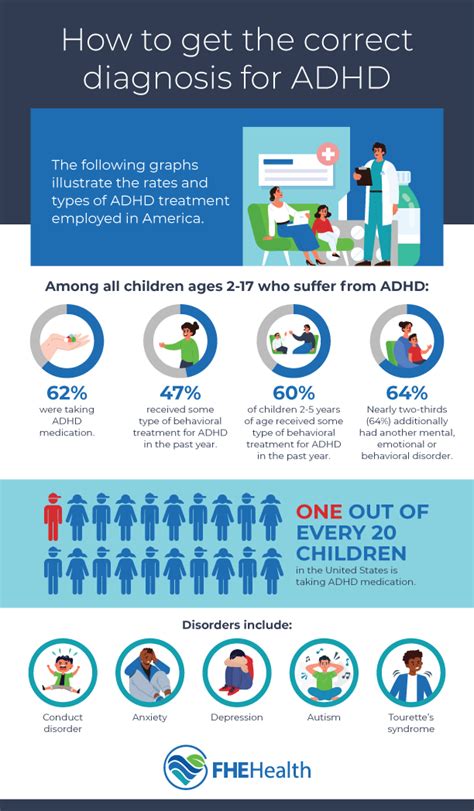How to Get an ADHD Diagnosis: A Comprehensive Guide
Getting an ADHD diagnosis can feel like navigating a maze, but understanding the process can significantly ease your journey. This guide provides a step-by-step approach to help you obtain a diagnosis and begin managing your ADHD effectively. We'll cover everything from recognizing the symptoms to understanding the diagnostic process and finding the right professional.
Understanding ADHD Symptoms
Before seeking a diagnosis, it's crucial to understand the hallmark symptoms of Attention Deficit Hyperactivity Disorder. These symptoms generally fall into two categories: inattentiveness and hyperactivity/impulsivity. Inattentiveness symptoms might include:
- Difficulty sustaining attention: Struggling to focus on tasks, conversations, or activities.
- Carelessness in work or activities: Making frequent mistakes due to a lack of attention to detail.
- Difficulty organizing tasks and activities: Problems with planning, time management, and prioritizing.
- Easily distracted: Being readily diverted from the task at hand by external stimuli.
- Forgetfulness in daily activities: Misplacing items, forgetting appointments, or neglecting responsibilities.
Hyperactivity/impulsivity symptoms may include:
- Fidgeting or squirming: Restlessness and an inability to sit still.
- Excessive talking: Interrupting conversations or dominating discussions.
- Difficulty waiting their turn: Impatience and difficulty following rules or instructions.
- Interrupting or intruding on others: Butting into conversations or activities without invitation.
- Difficulty remaining seated when expected: Getting up frequently, even in situations where it's inappropriate.
It's important to note that not everyone experiences all of these symptoms, and the presentation of ADHD can vary significantly from person to person. Some individuals may primarily exhibit inattentive symptoms, while others may experience predominantly hyperactive/impulsive symptoms. A combined presentation is also common.
Seeking Professional Help: The Diagnostic Process
Once you suspect you might have ADHD, the next step is to consult a healthcare professional. Several professionals can diagnose ADHD, including:
- Psychiatrists: Medical doctors specializing in mental health who can prescribe medication.
- Psychologists: Professionals who assess and treat mental health conditions through therapy.
- Pediatric neuropsychologists: Specialists who work with children and adolescents and have expertise in neurodevelopmental disorders.
- Clinical social workers: Licensed professionals who provide therapy and support.
What to Expect During a Diagnostic Evaluation
The diagnostic process typically involves a thorough evaluation, which may include:
- Detailed interview: The professional will gather information about your symptoms, medical history, and developmental history.
- Behavioral assessments: Rating scales and questionnaires may be used to assess the severity and frequency of your symptoms.
- Neuropsychological testing: In some cases, neuropsychological testing may be used to rule out other conditions and provide a more comprehensive understanding of your cognitive abilities.
- Review of medical records: Your doctor may review any relevant medical records to rule out other potential causes of your symptoms.
It's crucial to be open and honest with your healthcare provider during the assessment process. Accurate and complete information is essential for receiving an accurate diagnosis.
Finding the Right Professional
Finding the right professional can make a significant difference in your experience. Consider the following:
- Specialization: Look for professionals with expertise in ADHD diagnosis and treatment.
- Experience: Choose a provider with a proven track record of success in helping individuals with ADHD.
- Insurance coverage: Verify your insurance coverage before scheduling an appointment.
- Reviews and recommendations: Read online reviews and ask for recommendations from friends, family, or your primary care physician.
After Receiving a Diagnosis
Once you receive an ADHD diagnosis, you can start developing a treatment plan. This might include therapy, medication, or a combination of both. Remember, getting an ADHD diagnosis is a significant step towards better understanding yourself and managing your symptoms effectively. Don't hesitate to seek support and resources available to help you thrive.
Keywords: ADHD diagnosis, ADHD symptoms, getting diagnosed with ADHD, ADHD evaluation, ADHD assessment, ADHD professional, psychiatrist, psychologist, neuropsychological testing, ADHD treatment, inattentiveness, hyperactivity, impulsivity.
